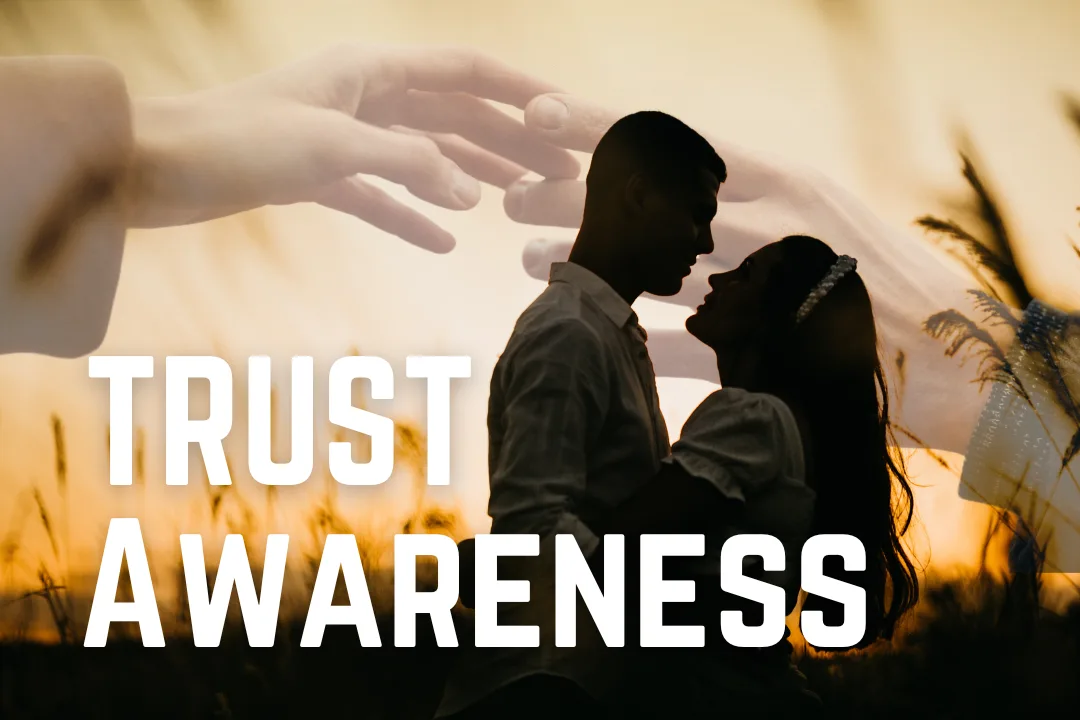INTRODUCTION
In any employment situation dependence is the first element that shapes the foundation of trust and security. Yet, it can be tough to recognise loyalty, never mind when minor hesitations or concerns begin to surface. To that end, friends should know what a good, stable, loving relationship should be, while knowing the signs of a bad relationship. Measuring alternatives of communication, behavioural patterns, etiquette, values and actions, commitment and trustworthy worth, the person is more likely to determine the level of loyalty of a partner. Moving on through this guideline, we shall expand on these five aspects, and at some points, discuss the signs in a relationship to look at so that you can adequately determine your connection.
AVOID RED FLAGS IN RELATIONSHIPS AND ENSURE LOYALTY
1. Effective Communication and Emotional Intimacy
The ability of a communication and the level of emotional connection displayed in the business partnership could easily be regarded as the most effective sign of the loyality of a partner. Thus, free, permeated with honesty, and openness make the couples bonded and committed. However, issues to do with relationship alarm bells are noticeable when communication becomes a issue, or a burden or when there’s a tendency of hiding information.
Key Indicators of Loyalty:
- Openness and Transparency: An ideal partner of such type is open-minded and casual in every respective aspects which include thoughts, feelings, and experiences. On the other hand, signs of danger in relationships encompass inability or unwillingness to engage in deep discussions, telling lies or keeping parts of themselves a secret and being very secretive about their daily activities.
- Active Listening: Loyal partners not only listen to what you care about, but are also interested in how you feel. Signs of abuse in relationships include patience, not listening to you, rolling your eyes or ignoring your emotions.
- Emotional Intimacy: It means that emotional connection is founded on trust and tightness between two people. A good partner is always willing to listen to your fears, anxiety, and even forbidden desire. If a partner is in a habit of withdrawing their feelings or love, they could be really dangerous signs in relationships.
Example: If, your partner is open and speaking to you or listens to your stories and shares their day, he or she is loyal emotionally. On the other hand, if people often avoid important conversations, act behind the back or try to distance from the partner there could be actual problems in relationships.
2. Consistency in Behavior and Actions
Loyalty is more than an occasional statement or a beautiful and meaningful phrase said to another person. Because of this, partners that are dependable, responsible and there is a clear agreement between the words and actions of such partners will have high levels of loyalty. In this sense, warning signs in relationships in this sense relate to observing situations where the client’s partner may say one thing but do another, or has recently started behaving differently.
Key Indicators of Loyalty:
- Dependability and Reliability: Which entails that a loyal partner is always present for the relationship and also delivers on their word. They are there for you when things are going well, and when things are going bad. But there could be signs of risks in relationships such as cancellations severally, the subject not being able to meet expectations, or explaining the action.
- Alignment of Words and Actions: The behavior of a partner has to be consistent both in licensed and unlicensed arenas. Abrupt changes of conduct that seem to involve some sort of concealment are good indicators of abusive relationship strategies.
- Accountability and Transparency: Both brands and customers understand the responsibilities to correct a error, if any, committed by the partner. On the other hand, denial, being overly defensive or making excuses, shifting the blame or sometimes using gaslighting can be rather large signs in relationships.
Example: Think about not needing to worry that your partner will not do what they said they would do, not worrying that they won’t tell you if they’re changing plans or get mad when they are wrong. These are positive signs that people are loyal. On the other hand, constant barriers, concealments and negations regarding prior information and statements are the markers in relation that acts as destroyer of trust.
3. Respect for Boundaries and Privacy
A loyal partner gives you space, cherishes the person that you are and the person that you both are together. People can understand and appreciate the boundaries as showing them respect and their cooperation. But lack of respect of the bounds or the invasion of space is always another major sign in relationships.
Key Indicators of Loyalty:
- Respect for Your Space: Loyalty also involves getting each other free time to look for our respective interests and even friends. When it comes to insecurity or lack of trust red flags in relationships a controlling or overly possessive partner who wishes to be together all the time fits the bill.
- Trust and Privacy: A loyal partner does not have to spy on you all the time because trust cannot be constructed on surveillance. There are standard rules of invasions of privacy, which, when observed by a partner, are significant signs of abuse in a relationship: frequently checking one’s phone or demanding detailed information about the day’s events, for example.
- Clear and Mutual Boundaries: Healthy boundaries are boundaries established and acknowledged by the members that are in the relationship. When one partner decides not to respect certain agreed boundaries, this should be termed as a red sign in the relationship.
Example: For instance, your partner understands your occasional desire to be alone or does not insist on gaining details about your private life or instantly trusts your decision-making ability. This demonstrates loyalty. On the other hand, constantly seeing your partner as a potential threat to spy on you, always doubting or ignoring your consent to privacy means there is a serious risk factor in relationships that can go to more profound forms of domination.
4. Commitment to Shared Values and Mutual Goals
Exactly, dedicated stakeholders not only refrain from crossing certain lines but also have similar principles and ensure that they are achieving the same objectives. When both have clear aspirations on the future and are committed to making them real, it lays good ground work of loyalty. But, problems in values, goals, or future vision can be also considered as signs of problems in the relationships.
Key Indicators of Loyalty:
- Shared Vision for the Future: An effective partner shares your visions of the future and integrates you into them. If your partner does not want to talk about what you two have in store for the future or their answers sound generic, it may be signs of relationships to consider.
- Effort in Resolving Conflicts: Conflict solving can only be established if both partners are willing to look for that resolution and be ready to compromise. While it is challenging to find and work, loyal partners try to do every effort to save the relationship in troubled times, while the red flags in relationships could include evasion, blame, or complete silence when a couple disagrees.
- Actions Reflecting Shared Values: It is also true that sacrifice for the relationship involves compromise, coordination with partner’s activities and provision of encouragement for partner’s dreams and objectives. On the other hand, betrayal of one’s values or simply not trying to meet goals that you both cherish as a couple may be viewed as warning signals.
Example: When your partner often talks about future with you, try to solve quarrels in an adult way, and behaves by the rules that both parties accepted, this means he is loyal. Not discussing things in the future; negation or belittling of your dreams and plans; or the complete avoidance of any form of functioning and bargaining are signs in relationships.
5. Trust-Building Actions and Avoidance of Suspicious Behavior
In any given relationship, trust is shown by one party making commitment over a period to uphold the relationship. Loyalty is therefore built out of set of behaviors and actions which are not likely to cause distrust. In this area, red flags refer to identifying signs of secrecy, lying or being coy with other people.
Key Indicators of Loyalty:
- Reassurance and Openness: A good partner doesn’t run away from offering boost when it is required. They share information with you easily and make you feel all right rather than insecure. Absence of openness or more often, the need to defend actions could have been evident signs in relationships.
- Avoiding Suspicious Behavior: A loyal partner is effective in ensuring that he or she avoids things that are likely to reduce or distort the trust factor between him and the partner. Specific warning signs in relationships include the following: When a partner secretes information or disappears for hours or days without any explanation or when he/she has something to avoid discussing or become unnecessarily aggressive.
- Transparency in Digital Interactions: This means that in today’s world of social media posting and online shopping people are loyal people. A trustworthy partner does not participate in obscene activities on social networking sites and does not have a guilty secret, other accounts or communications. Covert communication, surreptitious social media connections or affairs, and even flirtatious exchanges at the workplace are signs trouble in relationships.
Example: Some of the signs of loyalty include if your partner continues to share details of their social experience, comforts you without making you feel guilty, and ensure they do not engage in any act that will jeopardize your trust. However, in relationships, betrayal, dishonest, or even odd or panicky behavior should not be regarded as signals to overlook.
CONCLUSION
Loyalty in a person or on your partner’s part means you need to see the whole picture, not just one or two incidents. Thus, if you need to determine if your partner is actually loyal, you should pay attention to the five aspects of the communication process: consistency,/no invasion of physical or personal space, shared/(established) values, and trust-indicated actions. There are signs that should be on the lookout for such as communication breakdown, incongruity between spoken and observed words or behaviors, disregard for privacy, failure or reluctance to talk about the future or making future plans, or abnormal acts.
Healthy and loyal relationship means that each partner trusts the other, and it is possible to discuss anything with the partner without any conflict of interest and each of them works for a common good and this can only be achieved through honesty. In the case of both partners defensive aspects are kept intact it is easy to note the appearance of any signs of ‘red flags’ in relationships. It is about nice people who do not expect to be perfect but do care for each other and will stick together in spite of disagreement and do what is best for the couple.
This is why if you acknowledge that your partner possesses all positive qualities of the actual discussion in the five areas of relationships while the partner does not possess considerable behavioral red flags, you will be right when believing that loyalty is the essence of the partnership. However, when such indicators are steady or recurrent it is needful to dicuss it to get a clear understanding. However, do not forget, that the concept of loyalty in the marriage or committed partnership is mutual, and it is always necessary to invest time and effort and work on this relationship together with one’s partner.
So, paying attention to these five aspects of relationship as well as keeping in mind about these alert signs one can enhance a fair understanding about their partner’s loyalty and therefore make efforts towards having more healthy relationship.
If you have any thoughts on this topic, we’d love to hear from you. Feel free to share your experiences or questions in the comments below! and don’t forget to share them with friends and others who might benefit! Save Consumerviews in your bookmark for easy access, and follow our Facebook Page Consumerviews India for more articles like this.
Also Read,
Boosting Libido: 4 Expert Tips to Increase Sex Drive Naturally














0 Comments